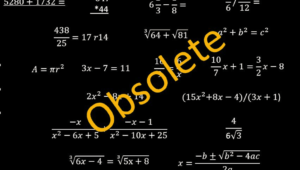What I’m Seeing: Magical Math Content

My friend MarieBjerede said, “There are no really good math apps out there.” She comes to that conclusion based on “promise of technology has been to make learning more personalized and engaging” including these five features:
- Allow students to move through the curriculum at their own pace through computer-aided independent study
- Provide a game-like experience that engages students and helps them stay on task longer
- Provide adaptive learning that gives each student the next best lesson for learning, not making them spend time on material they have already mastered
- Provide an immersive experience where rote skills are the side effect of applying higher order thinking; and
- Provide experiences that are customized to an individual’s style and preferences.
That’s a pretty good list. To the first point, digital learning systems like Pearson’s SuccessMaker and Compass Learning’s Odyssey enabled students to vary rate, time and location. Khan Academy helped popularize the ‘flipped classroom’ where teachers send video lessons home with students and class time is used for problem solving.
Addressing point two, Marie likes ST Math from MIND Research Institute, “Just as Angry Birds teaches you to hit pigs through trial and error, these games allow you to discover mathematical concepts the same way.”
Managhigh was developed casual game developers in conjunction with leading mathematicians—great games built around the mechanics of math. As Marie suggests, games like Mangahigh have the potential to build persistence and, as a result, procedural fluency. It seems to be working—there are probably more answered questions on Mangahigh than Khan Academy.
There is a flood of math apps for iPad, particularly for pre-school and primary. There are fewer algebra and geometry apps, but most math providers are scrambling to make their content touch enabled.
Adaptive systems, Marie’s third point, continue to improve. Dreambox powers Rocketship. Curriculum Associates recently released a K-8 adaptive assessment system called i-Ready that looks promising (compared to widely used NWEA). Assistments and Reasoning Mind are foundation favorites. At the collegiate level, Pearson added Knewton’s adaptive engine to their MyLab series.
Marie and I want to see more skill building done in context and support of immersive, applied, and integrated learning experiences. That would mean a quick introduction of a field trip involving a math application and a take home play math list in preparation.
Last on Marie’s wish list is customization. Soon, smart recommendation engines will queue the kind of learning experiences that have proven productive for individual students. School of One is an early example of that multi-modal vision. Given that vision, here’s four developments heading in the right direction:
- the multi-modal approach evident in NROC’s new developmental algebra
- the big collection of resources on Gooru organized by subject, course, unit, topic, lesson (SCUTL) taxonomy and type (video, web, interactive, slide, textbook, handout, lesson, and exam) with a mixture of OER and proprietary content
- the way Power My Learning from CFY makes it easy for teachers to build leveled playlists
- the way Edmodo surfaces widely used content for subject area groups
Marie is right there’s still a lot of flat and sequential math content, but a lot of it is becoming adaptive and engaging. Some of it is downright magical, intuitive, and visually compelling. It’s hard to imagine how we lived without email and GPS. Our kids will find it hard to believe that we learned math without adaptive engines and graphic calculators.
This is the sixth in a series of posts on trends I’m seeing in edtech startups. Previous posts covered productive post-sec, informal learning, skill verification, learning to code, classroom tools.






Tom Vander Ark
A friend sent me this comment:
Have you met Kevin McAliley of Think Through Math? This company should be on your radar. We feel we have the most robust, adaptive math remediation solution that grades 3 though algebra has seen.
http://www.thinkthroughmath.com/